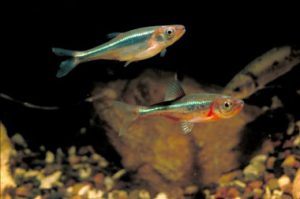Climate Change
Research
Global climate change is predicted to have a large impact for aquatic ecosystems. Global air temperatures are predicted to increase between 1.4 and 5.8°C by the year 2100, with variability among estimates being due to difference expectations about economic development. In regions closer to the poles, temperatures are predicted to increase at even faster rates (4-7°C). Therefore, fish species which typically rely on warm-water habitats may have access to additional favourable thermal habitat, shifting the northern limit of the distribution of species further north and potentially negatively impacting native fish communities. The spread of non-native species into novel habitats can cause serious ecological impacts, including: homogenization of native fauna, genetic hybridization, and reductions in ecosystem services (Poesch et al. 2016). We use climate change models to assess impacts to vulnerable species (e.g. Pandit et al. 2017) and help develop appropriate management actions (Poesch et al. 2016). Click on the photos, articles or news items to learn more about some of the research we are conducting on climate change impacts to freshwater fishes! Note: * Lab members.
Articles from Lab

Serbu, J. A., St. Louis, V. L., Emmerton, C. A., Tank S., Criscitello, A., Silins, U., Bhatia, M., Cavaco, M., Christenson, C., Cooke, C., Drapeau, H., Enns, S. J., Flett, J., Holland, K., Lavelle-Whiffen, J., Ma, M., Muir, C., Poesch, M. S., and J. Shin. (2023). A comprehensive biogeochemical assessment of climate-threatened glacial river headwaters on the eastern slopes of the Canadian Rocky Mountains. JGR Biogeosciences 129: e2023JG007745.

Pandit, S.N.*, Koriala, L., Maitland, B.M*, Poesch, M.S., and E. Enders. (2017) Climate change risks, extinction debt, and conservation implications for an endangered freshwater fish Carmine Shiner (Notropis percobromus). Science of the Total Environment 598: 1-11.

Poesch, M.S., Chavarie, L., Chu, C., Pandit, S.N.*, and W. Tonn. (2016) Climate change impacts on freshwater fishes: A Canadian perspective. Fisheries 41(7): 385-391.



